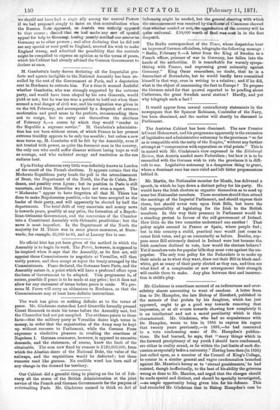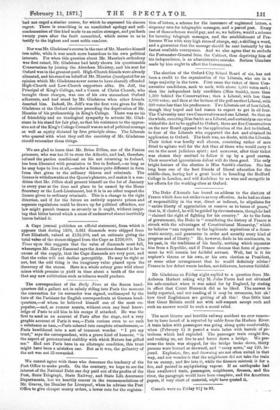Mr. Gladstone is sometimes accused of an indirectness and over-
subtlety almost amounting to want of candour. A letter from him to Dr. Hampden, the late Bishop of Hereford, published in the memoir of that prelate by his daughter, which has just appeared, ought to go a good way towards removing that impression, or at all events towards showing how completely it is an intellectual and not a moral peculiarity which is thus characterized. Mr. Gladstone, who had no acquaintance- with Dr. Hampden, wrote to him in 1856 to express his regret that twenty years previously,—in 1836,—he had concurred in a vote condemning some of Dr. Hampden's publica- tions. He had learned, he says, that " many things which in the forward precipitancy of my youth I should have condemned, are either in reality sound, or lie within the just limits of such dis- cussion as especially befits a university." Having been then (in 1856) just called upon, as a member of the Council of King's College, to concur in a similar general and vague condemnation launched against Mr. Maurice's heresy as to eternal punishments,' he had resisted, though ineffectually, to the best of his ability the grievous wrong so done to Mr. Maurice, and urged that the charges should be made special and distinct, and should be specially investigated, —an ample opportunity being given him for his defence. This had reminded Mr. Gladstone that in Bishop Hampden's case he
had not urged a similar course, for which he expressed his sincere regret. There is something in an unsolicited apology and self- condemnation of this kind made to an entire stranger, and putlorth twenty years after the fault committed, which seems to us to testify to the highest and most noble candour.































 Previous page
Previous page